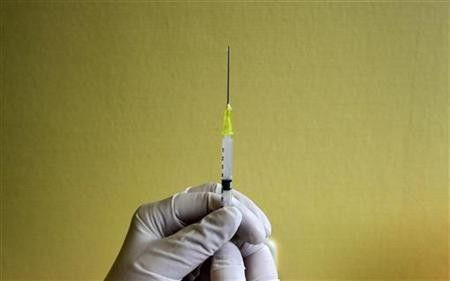Promising brain cancer vaccine moves to larger clinical trial

A cancer vaccine that is designed to combat glioblastoma brain tumors has come a step closer as it advances to a larger, multisite study. The SurVaxM vaccine, developed at Roswell Park Cancer Institute, or RPCI, is being tested in a clinical trial to assess its effectiveness in combination with standard chemotherapy.
Though relatively rare, glioblastoma is the most common and aggressive type of primary brain tumour and is often fatal. Similar to majority of cancers, glioblastoma contains a cell-survival protein called survivin. The SurVaxM is engineered to treat survivin-expressing cancer cells as foreigners, inciting a specific immune response. According to preclinical studies, this approach may be worthy of additional study in melanoma, ovarian and prostate tumors as well as in other survivin-expressing cancers.
The second phase of the SurVaxM study will involve 50 patients with newly diagnosed glioblastoma brain tumors, who will receive the vaccine in combination with temozolomide or Temodar, the standard chemotherapy for glioblastoma. The vaccine will be given in four doses over the first eight weeks of treatment, and once every 12 weeks from that point on.
According to Dr Robert Fenstermaker, the study’s principal investigator, the first phase of the clinical trial involved eight patients who were all given doses of the vaccine. While it is considered small scale, he says, the study conveyed an important signal as seven of the patients survived longer than a year. Only a few people suffering from glioblastoma survive beyond eight months. “Our first clinical study established that this vaccine appears to have low toxicity, that it generated the tumor-specific immune response we were looking for and that some patients seemed to benefit from it,” adds Fenstermaker.
His colleague, Dr Michael Ciesielski says that for the second phase of the clinical trial, the team will be looking to see if patients who were given the vaccine in addition to standard therapy will do better than those who received standard therapy alone. “In glioblastoma, a patient’s immune system is healthiest early in the course of the disease, right after they’ve had surgery. So we’re particularly excited about the opportunity to be giving the vaccine up front, in patients who are most likely to benefit,” Ciesielski says.
Fenstermaker is the chair of the Department of Neurosurgery, director of the Neuro-Oncology Program and a professor of Neurosurgery and Oncology at Roswell Park, while Ciesielski is an assistant professor in the Department of Neurosurgery at Roswell Park.
Contact the writer at feedback@ibtimes.com.au or tell us what you think below.





















